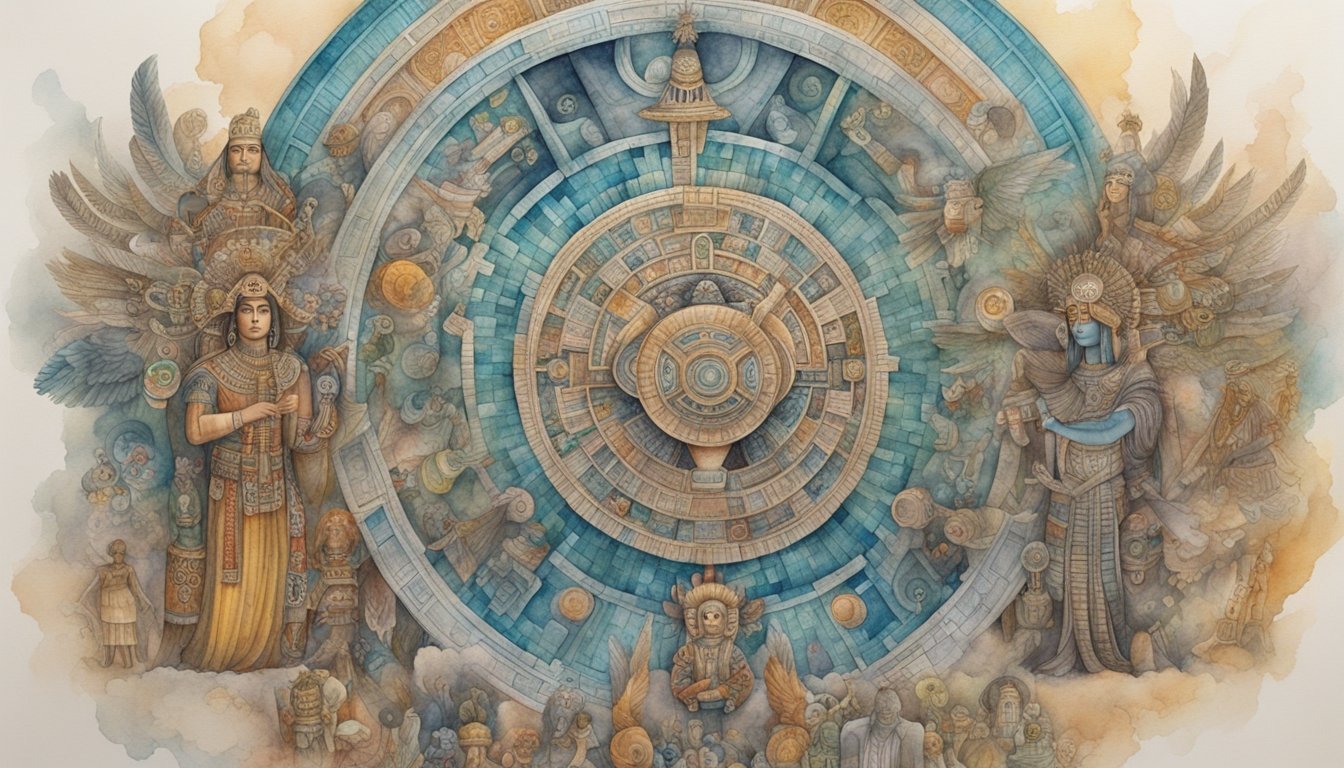Core Tenets of Mayan Religion
The Mayan religion is a rich tapestry of beliefs, rituals, and mythology deeply intertwined with the fabric of the universe and human existence. It is a complex system where the divine, the cosmos, and the mundane world of humans are closely connected.
Creation Myths and Cosmic Order
The Maya believe that the universe was created by their pantheon of gods, with a particular emphasis on the creation myth of the Hero Twins and the Maize God. These narratives not only explain the origins of the cosmos but also confer a sacred order to the Maya world. The Maya cosmos is thought to be divided into multiple layers, with the Earth at the center, flanked by the heavenly realms above and the underworld, Xibalba, below. Time is also a central concept, regarded as cyclical and sacred, with each day bearing its own divinity and influence over human life.
Rituals and Ceremonies
Mayan rituals and ceremonies are vital in maintaining the balance between the earth, the divine, and the underworld. Rituals often involve offerings and sometimes human sacrifice to appease the gods and ensure the continuity of life and the cosmos. The practice of bloodletting by royalty was common, embodying the belief that royal blood was particularly sacred. Agriculture ceremonies were significant, seeking favor from Chak, the rain god, to ensure good harvests. Beyond physical rituals, the Mayans believed that death was a transformation leading to the afterlife, where souls would navigate through the layers of the underworld to reach the heavens or be reborn into the world.
Mayan Pantheon and Supernatural Beings

The Maya civilization had a rich and complex pantheon, with each god or supernatural being deeply ingrained in their culture. These entities influenced every aspect of Maya life, from agriculture to astronomy, and were integral to their religious practices.
Gods and Goddesses
The ancient Maya worshipped a multitude of deities, each with specific roles and attributes. Among the most prominent was the Maize God, a symbol of fertility and rebirth, representing the agricultural cycle crucial to Maya survival. The goddess Ix Chel was associated with the moon, childbirth, and medicine. Rain was personified by the god Chaac, revered across the Yucatán Peninsula for his significance in agriculture and his connection to water. Offerings and sacrifices to these gods, often depicted in Maya codices, were central to festivals and religious ceremonies.
The Maya pantheon also included the Hero Twins, Hunahpu and Xbalanque, who were immortalized in the Popol Vuh, an ancient text that recounts the mythology and history of the Kʼicheʼ people of Guatemala. The twins’ saga against the lords of the Underworld, Xibalba, is an important part of Mayan mythology.
Ritual Significance of Animals and Elements
Animals and natural elements played a significant role in Maya religion, often symbolically associated with gods and cosmology. The jaguar, revered for its strength and ferocity, was linked with the night sun and the underworld. It was often depicted in Mayan iconography and associated with rulers and shamans. Wind and rain were spiritual forces connecting the earthly with the divine, influencing harvests and water sources like cenotes, sacred natural wells.
In Maya cosmology, the cardinal directions were represented by the Bacabs, four brothers who held up the sky. The sacred Ceiba tree, thought to connect the layers of the Maya universe—from the underworld through the earthly realm to the heavens—was central to their view of existence. Elements and animals were not merely inanimate parts of their environment but regarded as animate, filled with k’uh, or sacredness, reflecting the deeply spiritual nature of all things in Mayan belief.

